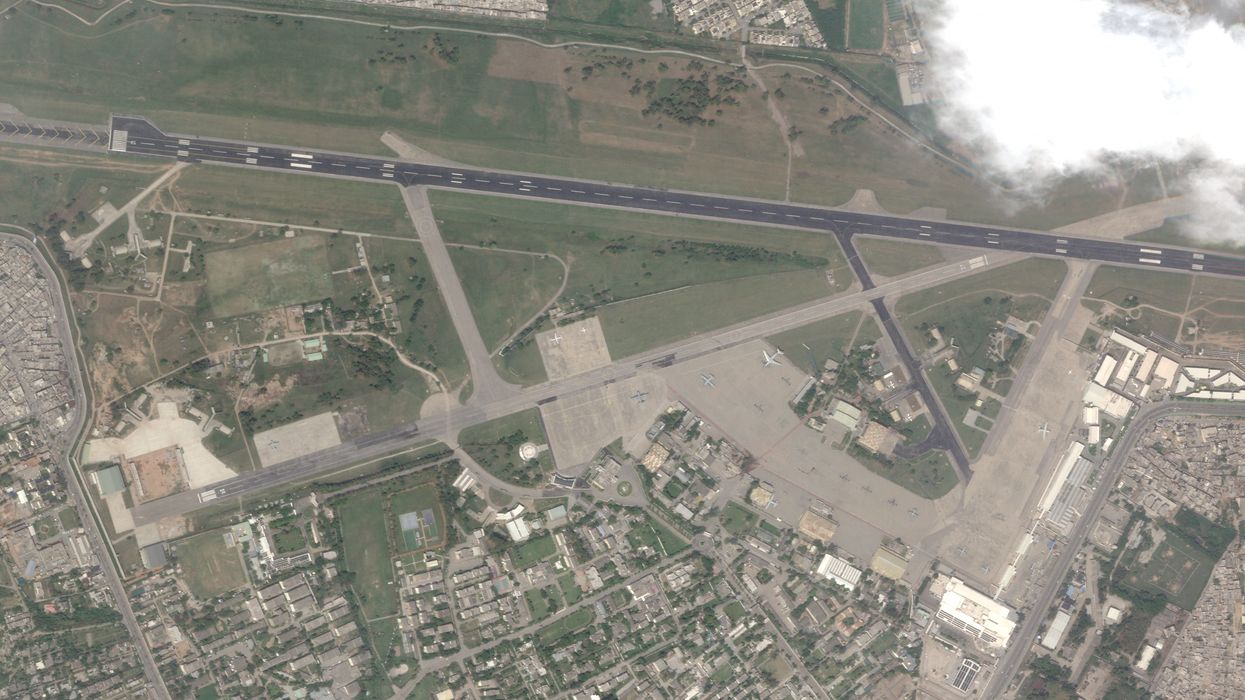A CEASEFIRE between India and Pakistan has eased tensions after four days of intense fighting, but analysts say no clear winner has emerged from the conflict.
Both countries claim to have achieved their objectives in what was their worst confrontation since 1999, without acknowledging significant losses.
The hostilities began last Wednesday when India launched strikes on what it called “terrorist infrastructure” inside Pakistan. India accuses Pakistan of backing the terrorists it says were behind an April attack that killed 26 people in Indian-administered Kashmir. Pakistan denies the allegation.
“If victory is defined by who lost the most manned aircraft, then India certainly lost this one,” said Ashley Tellis of the Carnegie think tank.
ALSO READ: Kashmir tensions ‘let China peek into Indian defence assets’
“But India also succeeded in effectively interdicting a range of Pakistani surface targets and imposing significant costs on Pakistan,” Tellis told AFP.
“Both sides continue to claim air-to-air kills, but clear evidence remains unavailable at the time of writing,” said Fabian Hoffmann from the University of Oslo.
“What stands out is the extensive use of conventional long-range strike systems by both sides to target military infrastructure deep within enemy territory, including sites near their capitals,” he added.
The international community, including the United States, eventually stepped in, concerned about the potential for further escalation.
ALSO READ: Modi warns of strong response to any future terrorist attack
Hoffmann said the two countries showed little restraint despite avoiding “deliberate strikes on critical civilian infrastructure.”
“Any shift in that direction would... potentially bring the conflict closer to the threshold of nuclear use,” said Hoffmann.
Tellis said the global trend towards violence by states facing internal unrest requires greater international attention.
The fact that both countries are nuclear powers “makes the conventional balances all the more important. But the fact remains that neither side has a decisive conventional edge in a short war,” said Tellis.
Like other modern conflicts, the fighting saw extensive use of drones, said Oishee Majumdar from British intelligence firm Janes.
India used Israel Aerospace Industries’ exploding drones Harop and Harpy, along with reconnaissance drone Heron, Majumdar told AFP.
ALSO READ: What is Operation Sindoor, India's strikes in Pakistan?
According to Military Balance, India also deployed the Indian-made Nishant and Drishti drones.
Indian media reported that New Delhi used French SCALP and Indian BrahMos cruise missiles, as well as AASM Hammer bombs developed by France’s Safran.
The Pakistani army deployed Songar drones from Turkey’s Asisguard, according to Janes.
Military Balance said Pakistan was also armed with Chinese CH-3 and CH-4 combat and reconnaissance drones, Wing Loong, and Turkey’s Akinci and TB2 drones.
At the start of the conflict, China called for restraint from both sides and offered to play a “constructive role”.
However, experts say Beijing’s position has been clear. China said it considers Pakistan an “ironclad friend” and “understands Pakistan’s legitimate security concerns”, said Chietigj Bajpaee from Chatham House.
Bajpaee said that “over 80 per cent of Pakistan’s arms imports over the last five years have come from China.”
“Beijing supplies Islamabad with key systems” including the HQ-9/P surface-to-air missile system, the LY-80 medium-range air defence and FM-90 defence systems, said John Spencer, a former US army officer and researcher at the Modern War Institute.
Spencer added that Pakistan’s “reliance on Chinese exports has created a brittle illusion of strength,” and while the systems are “designed to provide layered protection,” they “failed” against India’s strikes.
Pakistan claims it shot down five Indian fighter jets, including three Rafale aircraft, all while they were inside Indian airspace. India has not confirmed any losses.
Dassault, the French manufacturer of the Rafale, declined to comment.
A European military source said it was “very unlikely” that three Rafales were destroyed but added it was “credible” that at least one was.
Analysts say Indian aircraft were likely brought down by a Chinese PL-15E air-to-air missile, which has a range of 145 kilometres and whose debris was found in Indian territory.
“India lost at least one Rafale to a Pakistani J-10C firing a PL-15 air-to-air missile in an ultra-long-range air engagement,” said Carnegie’s Tellis.
This type of missile can remain undetected until its radar is activated “a few dozen kilometres away, or a few seconds” from its target, according to a French fighter pilot interviewed by AFP.
“You can’t escape it.”
(With inputs from AFP)




